The Secret Social Lives of Cats
New Research Unveils the Complex Social Abilities of Our Feline Friends
A recent article in The New York Times titled "A Feline Scientist Explains Why Your Cat Might Actually Like You" reports on a recently published study that has sparked renewed interest in the social capabilities of cats. Historically, cats have been perceived as asocial and uncooperative, largely due to their solitary wildcat ancestry. However, new research is challenging these assumptions, revealing that cats possess complex social abilities that have been underestimated.
A New Perspective on Feline Social Cognition
For years, the scientific community has focused primarily on the social intelligence of dogs, given their long history of domestication and close relationship with humans. This has resulted in a wealth of knowledge about canine behavior, while the social capabilities of cats have remained more of a mystery.
Dr. Kristyn Vitale, a leading researcher in animal behavior, is pioneering efforts to expand our understanding of feline social skills. Working alongside Monique Udell at Oregon State University, Dr. Vitale's research is uncovering the intricate social behaviors of cats, challenging the long-held view of these animals as solitary and indifferent to human interaction.
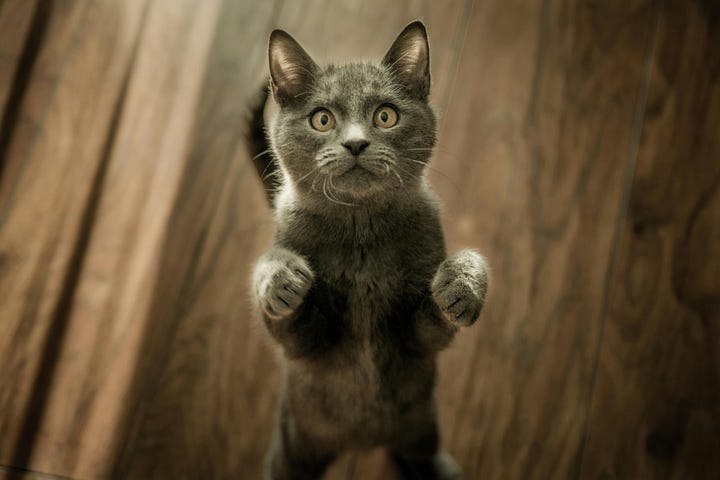
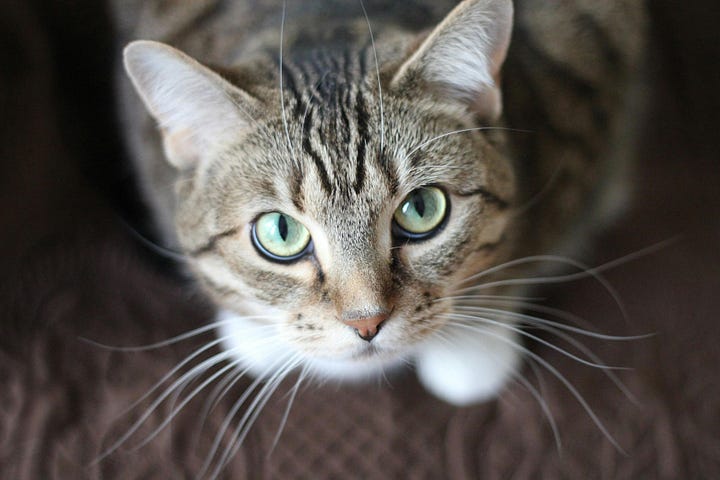
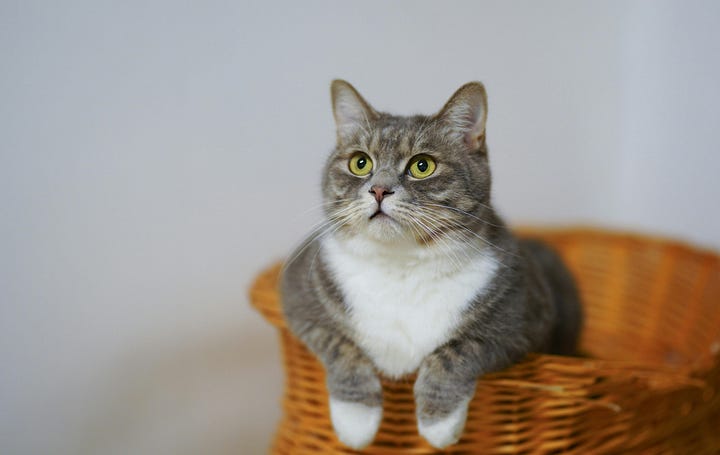
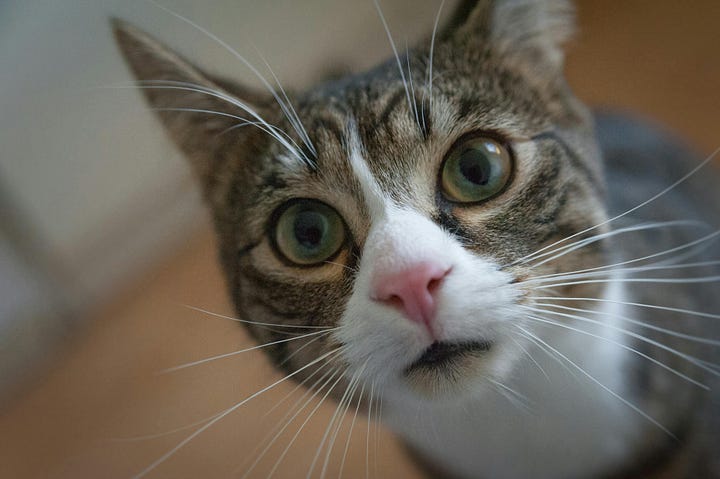
The Flexibility and Individuality of Cats
Contrary to popular belief, cats are not inherently asocial. Dr. Vitale emphasizes that the misconception lies in the assumption that cats are indifferent to social interactions or that such interactions hold little importance for them. She underscores the flexibility and individuality of cat social behavior, shaped by each cat's unique traits and life experiences. This nuanced perspective challenges the traditional view of cats as solitary and uninterested in social connections, paving the way for a deeper understanding of feline behavior.
Comparative Studies and Social Skills
Recent studies have shown that cats can perform similarly to dogs in certain social cognition tests, such as following human gaze and understanding pointing gestures. These findings suggest that cats possess a level of social intelligence comparable to that of dogs. For instance, in a study conducted by Dr. Vitale, cats were able to follow human pointing gestures to locate hidden food, a task that requires understanding human intentions and social cues.
Moreover, cats have demonstrated the ability to mentally map their owners' locations based on vocal cues. This ability to form mental representations of their environment and the people within it indicates a sophisticated level of cognitive processing. Such findings challenge the stereotype of cats as aloof and uninterested in their human companions.
Implications for Cat-Human Relationships
The growing body of research on feline social cognition has significant implications for cat-human relationships. Understanding the social capabilities of cats can improve human-cat interactions and enhance the welfare of domestic cats. For example, recognizing that cats can form strong social bonds with humans and other animals can lead to better socialization practices and more effective enrichment strategies.
In a recent Animal Politics article, Unlocking the Secrets of Social Learning, I reported on the groundbreaking research into the social learning capacity of pets, highlighting how dogs can learn from observing human and conspecific behaviors. This body of research underscores the importance of social learning in enhancing the welfare and cognitive development of pets. Similarly, the new findings on feline social cognition reveal that cats, much like dogs, can benefit from enriched social environments and interactions, further emphasizing the value of understanding and nurturing the social capabilities of our animal companions.
For Animal Shelters:
Socialization Programs: Shelters can implement structured socialization programs for kittens and adult cats. Early socialization with humans can help cats develop positive social behaviors, making them more adoptable. For instance, shelters can use human interaction, toys, and food as part of socialization exercises to help cats become more comfortable around people.
Enrichment Activities: Providing environmental enrichment, such as interactive toys, climbing structures, and puzzle feeders, can reduce stress and promote natural behaviors in shelter cats. Studies have shown that enrichment activities can improve the overall well-being of cats in shelters, making them more relaxed and sociable.
For Cat Owners:
Understanding Social Cues: Cat owners can improve their relationship with their pets by learning to recognize and respond to their cats' social cues. For example, understanding that a cat's slow blink is a sign of affection can help owners build trust and strengthen their bond with their cats.
Interactive Play: Engaging in regular interactive play sessions with their cats can provide mental and physical stimulation, reducing behavioral issues and enhancing the cat-owner bond. Toys that mimic prey, such as feather wands and laser pointers, can be particularly effective.
Positive Reinforcement: Using positive reinforcement techniques, such as treats and praise, can encourage desired behaviors in cats. This approach can be used to train cats to perform specific actions, such as coming when called or using a scratching post, thereby improving their behavior and the overall harmony in the household.
A New Era of Feline Research
The field of feline social cognition is expanding, with studies being conducted globally, from Mexico to Japan. These studies are uncovering new aspects of how cats perceive and interact with their environment and humans. Researchers are finding that cats use various forms of communication, such as gaze alternation and vocalizations, to interact with humans. They can also distinguish between their owners' voices and those of strangers, indicating a nuanced understanding of human social cues.
As we continue to explore the social intelligence of cats, it is becoming clear that these animals are far more complex and socially adept than previously thought. This growing body of research not only enriches our understanding of cats but also has practical implications for improving the bond between cats and their human companions.
The evolving understanding of feline social cognition is transforming our perception of cats. By challenging long-held assumptions and revealing the social capabilities of these animals, researchers like Dr. Vitale are paving the way for a new era of feline research. This shift in perspective promises to enhance the welfare of cats and deepen the bond between humans and their feline friends.
Ed Boks is a former Executive Director of the New York City, Los Angeles, and Maricopa County Animal Care & Control Departments. He is available for consultations. His work has been published in the LA Times, New York Times, Newsweek, Real Clear Policy, Sentient Media, and now on Animal Politics with Ed Boks.
Contact Ed Boks Consulting to help transform your organization's approach to animal welfare! With a proven track record in some of the largest animal control programs in the United States, Ed Boks offers unparalleled expertise in strategic planning, program development, and organizational efficiency. Whether you need help with capacity building, crisis management, or legislative lobbying, Ed Boks Consulting provides the innovative, compassionate solutions your organization needs to achieve and sustain success. Don't wait—reach out now to start making a life-saving difference! Contact Ed Boks Consulting at: animalpolitics8@gmail.com

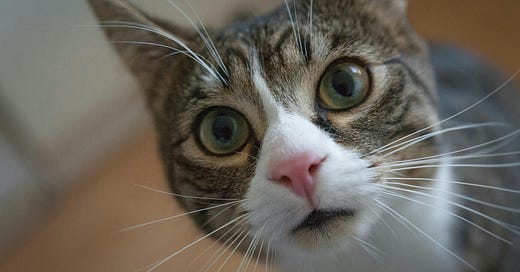



I tried an experiment on my cat. I used to joke around, calling her a nuisance and a loose-neutron, etc. AND, she was stereo-typically distant. ONE day, I started calling her "pretty kitty", multiple times a day. The change was immediate. The slow blinks, cooperation, rubbing... My most recent kitten, after her spay, developed a habit of laying down in the cat box. Somewhere on Google, I read to play with her more, so I got out the laser pointer. It made a world of difference. What amazes me that both of my seem to want to please me. Astonishing, when I thought only dogs did that.
Love this. My cats are earth angels, I won the cat lottery.